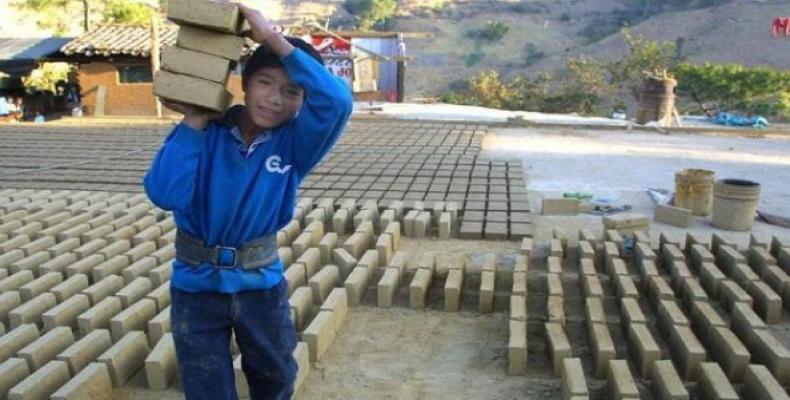Mexico City, April 29 (teleSUR-RHC)-- Over 124,300 children in Mexico are forced to work in order to afford food and clothing, to contribute to the household income, or attend school, says a new study by the National Council for Discrimination Prevention (Conapred).
Released Monday, the study explained how two out of ten Mexican young men and women involved in domestic work are between the ages of five and 13. They are also often employed under risky conditions because there is no regulation on the employment of children in the country. Children can, and do get caught in situations of violence, exploitation or mistreatment, say the researchers.
Earlier this month, the Mexican senate ratified the International Labor Organization's “convention 138,” which sets a minimum age requirement to enter the formal work force, making it illegal for children to work. However, experts say this is a dangerous move in Mexico where children living in poverty will continue to look for work and be employed illegally, without access to labor rights and continuing to be exploited.
Conapred's publication also points out that 67.4 percent of child laborers work for a third party, while 32.6 percent work alongside their families. As part of the study, Conapred surveyed 243,000 domestic workers in the country and found that 5 percent of them are girls between the ages of 12 and 17.
Sixteen-year-old Ernestina says she has been working since the age of eight in order to help her family, “I've been working since I was eight years old, helping the ladies sweeping and mopping the house. I wash glasses and the bathroom. I also babysit. I work to buy clothes and help my parents; they do not earn enough to keep me and my five brothers. Two [of them] also work.”
The ILO says domestic work by minors is often done in situations similar to slavery. They are often fed low quality food, are fed separately from the family or employer, and sleep in inappropriate places like the kitchen, while the work also interferes with integral personal and educational development. According to the ILO, the children involved in such work say that the daily experience of discrimination and isolation in the employer's home is the hardest part of their experience.


